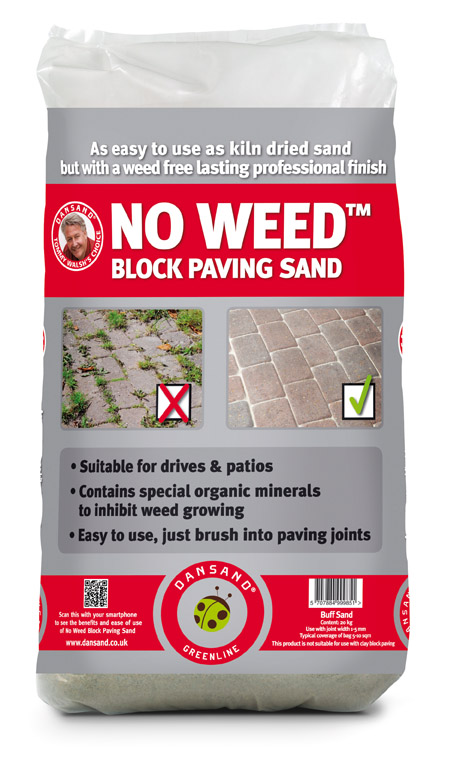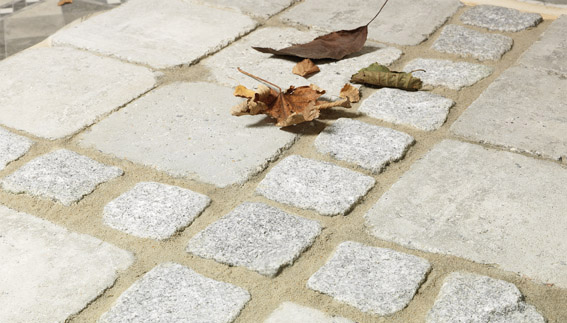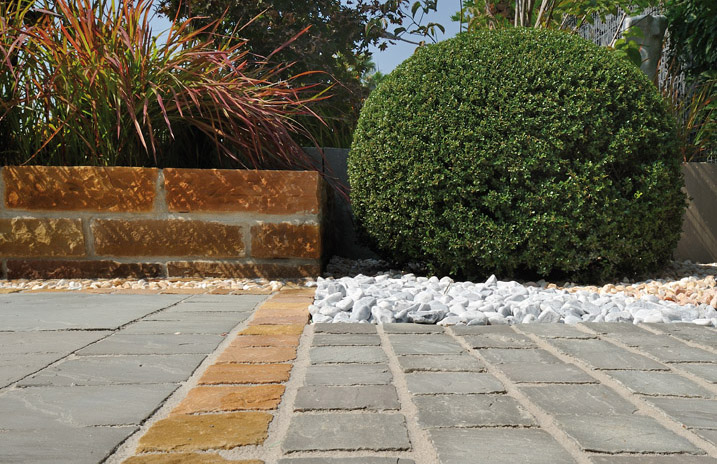DANSAND, anti-weed sand
SAND FOR GROUTING OUTDOOR PAVING
Two types of sands to permanently inhibit the growth of weeds in the grooves and joints of pavements.
Easy to use and with long lasting characteristics, they can withstand many years of rain without losing their inhibitory effect against weeds.

ANTI-GRASS SAND
(red sack for light-colored joints from 1 to 5 mm)
NOTES
• The joint filling material is not suitable for brick flooring and some types of natural stone.
• Not suitable for large joints.
• The joint filling material is for external use only and must not come into contact with foundations or masonry.
• In extreme dry weather conditions, the grouting material can cause white spots on the flooring surface that can be easily removed with water.
• The joint filling material is not suitable for brick flooring and some types of natural stone.
• Not suitable for large joints.
• The joint filling material is for external use only and must not come into contact with foundations or masonry.
• In extreme dry weather conditions, the grouting material can cause white spots on the flooring surface that can be easily removed with water.
| ANTI-GRASS SAND (red bag) | |
| GAP COLOR | Light |
| GRANULOMETRY | 0-1.5 mm |
| JOINT DIMENSION | 1-5 mm |
| SURRENDER | 20 kg cover about 5-10 m2. Example: self-locking size 14x21x5 cm, with 2-3 mm wide joint, it needs about 2 kg / m2. |
| DEPTH JOINTS | At least 5 cm for light traffic areas and at least 4 cm on terraces. |
| PACKAGING | 20 kg bag / Dry material |
| POLYMERIZATION | – |
| DRYING | – |
| READY TO USE | Yes |
LAYING ANTI-GRASS SANDS
The stone blocks or slabs must be laid on a normal substrate, as specified in the standards of any paving job. The sand for the escape is permeable to water and the bottom must also be permeable. When the floor is dry, spread the sand with a shovel and sweep it into the joints with a broom, with diagonal movements in the joint sections as you would with the sand of a common floor. Use a vibrating compactor on the new pavement for best results. Carry out the passage at least twice and, if necessary, refill the joint.
REPAIR OF EXISTING PAVINGS
Destroy and remove any weeds before starting the floor repair. The new sand is not able to fight old weeds that have already taken root and it is therefore necessary to start work on the clean joints.
The stone blocks or slabs must be laid on a normal substrate, as specified in the standards of any paving job. The sand for the escape is permeable to water and the bottom must also be permeable. When the floor is dry, spread the sand with a shovel and sweep it into the joints with a broom, with diagonal movements in the joint sections as you would with the sand of a common floor. Use a vibrating compactor on the new pavement for best results. Carry out the passage at least twice and, if necessary, refill the joint.
REPAIR OF EXISTING PAVINGS
Destroy and remove any weeds before starting the floor repair. The new sand is not able to fight old weeds that have already taken root and it is therefore necessary to start work on the clean joints.






